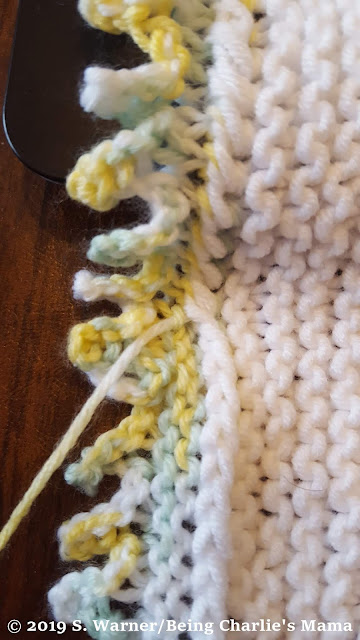(Topic: Talking about grief, mental health and related items, and the language that we can use to talk about them)
Dear Friends,
*** NOTE: I AM NOT A MENTAL HEALTH EXPERT, OR A DOCTOR. THESE ARE MY OWN OBSERVATIONS. IF YOU FEEL YOU NEED HELP, PLEASE CONTACT A MEDICAL PROFESSIONAL ***
One of the things my husband and I have noticed is that we have developed a bit of our own language to discuss some of the mental health issues going on (basically all of which are resultants of grief).
Fascinatingly, there are multiple mental health issues that are a natural extension of grief. I've only really read about grief following infant loss, so my observations are based on my own experiences, and on what I've read - in both cases, this is limited to pregnancy and infant loss scenarios. Grief is a funny beast. Like other issues that affect your mental health, it's hard to figure out how to explain when you're inside it because it affects how you think and act, and it can be hard to understand when you're outside it, because it seems to alter the personality of the person you're trying to understand.
Overall, though, some common reactions seem to be anxiety-style
symptoms, depression-style symptoms, and PTSD-style symptoms. I'm
phrasing it like this, because often the person who has these symptoms
doesn't have enough or quite exactly what would be truly diagnosed as
full anxiety, or full depression, or full PTSD. There are many other manifestations too, such as sleep issues, a feeling of empty arms, and many other things. They are, simply, grieving, and grief is a many-sided thing.
There is an aspect of mental health issues that is purely medical: for instance, depression (when on its own) is actually your brain not doing its brain chemistry right. In this instance, then, one of the more obvious treatment routes can be medication, to re-balance the chemicals. (This is parallel to, say, diabetes: your body isn't doing sugar chemistry right, so you use medication to help re-balance the sugar chemistry so you feel better and are more healthy.)
Another aspect isn't as directly medical, and is much more emotional. That's where it gets seriously complicated to put into words. Since grief is a complex set of feelings and reactions based on an emotional event, a lot of grief falls into this messy category. And because it's a messy beast, and impacts YOU in your current age, place in life, and personality, it can mean that the resulting mental health effects can vary hugely. In this case, I have found it extremely helpful to go to a therapist, because they have the training to give me tools to cope with the issues better, and the distance from the emotion and the issues to have a cool head and an outside/third-party perspective
One of the things I do with my therapist is get her help figuring out which definitions fit me, and how I relate to the technical details of what I'm experiencing. I actually feel I deal better with what's going on if I have words to put to it.
Because so much of the grief experience is personal, it was helpful to me and my hubby to create a bit of our
own "code" for talking about what we are experiencing, too. This enables him, for example, to alert me that I'm acting like my anxiety is bothering me, but in a fun way that doesn't make things worse. It's not necessarily obvious to outsiders, either, but that wasn't the point - it really started as a nerdy joke and just worked for us.
Specifically, the word that we use is based on a quote from my favorite Shakespeare play, Hamlet. Towards the beginning, Hamlet's dead father, as a ghost, says that he can't tell Hamlet about where he spends his time - but if he did, it would shock Hamlet so much his hair would stand on end like porcupine quills. Here's the quote:
 |
| That last line, particularly. |
 |
| This is the picture my particular copy has! |
The term "fretful porpentine" is the phrase we latched onto. Because when I'm anxious, I often act fretful! So now, we talk about my porpentines acting up, or running around.
Why do I find this helpful? It helps me distance myself from how the anxiety feels. It helps me say "it's a feeling I'm experiencing, it's not my whole world." It also helps me realize that I can regain some amount of being rational, and helps me prevent spiraling into panic or into a dullness similar to depression (depending on the reasons that the anxiety is being an issue).
I'm not saying that everyone with grief or grief-related issues does this. I'm guessing some people do, and I'm pretty sure many people don't. Hubby and I are both language-y and word-y types. We both love to read, and write, and pun, and play with words. So for
us, this was a natural way for us to work through and deal with the issue.
Yours,
Sarah
To subscribe, find the "subscribe by email" note in the left column and enter your email there. Links to posts will be emailed directly to you whenever I post them! Nothing else gets emailed.
Resource list: Visit my spreadsheet at www.tinyurl.com/infantloss
































